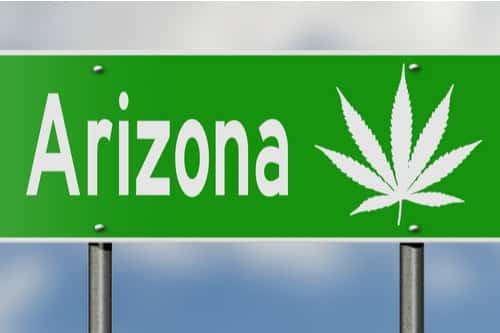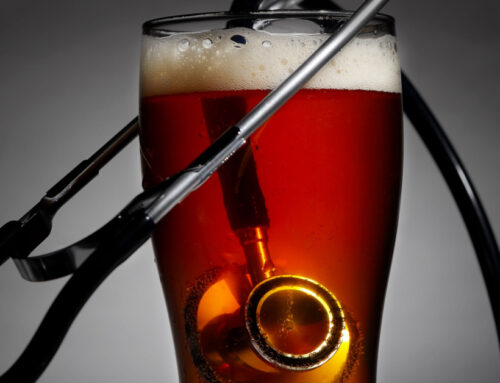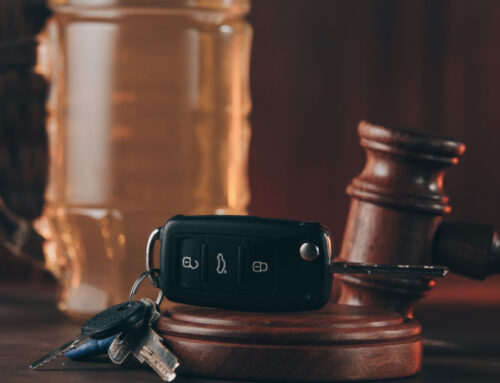In a “normal” DUI case, a driver’s blood alcohol concentration (BAC) will be key evidence of guilt (unless the driver’s BAC reading is unreliable or unavailable). However, BAC is irrelevant in marijuana DUI cases, and there is currently no comparable test the police can use to determine if a driver’s abilities are impaired by marijuana. So, if you have been charged with a marijuana DUI in Arizona, what evidence can prosecutors use to convict you?
Proving Impairment in an Arizona Marijuana DUI Case
The National Highway Traffic Safety Administration (NHTSA) addressed the topic of proving marijuana impairment in a Report to Congress in 2017. In its report, the NHTSA explained:
“The detection of driver drug impairment typically takes place as a result of a law enforcement officer observing inappropriate driving behavior. The officer will stop the vehicle and engage the driver in conversation while inside the vehicle. The officer at this time may form a suspicion that the driver is impaired. This suspicion can be based on observations of driving behavior, the appearance of the driver (e.g., face flushed, speech slurred, the odor of alcoholic beverages on breath), the behavior of the driver, and any statements the driver has made about alcohol or drug use. If the officer suspects that the driver is impaired, the officer will request that the driver exit the vehicle, and the officer will proceed to conduct pre-arrest screening tests. . . .
“When [] BAC test results are incompatible with the observed impairment, then the officer will consider drugs other than alcohol as the likely cause of the observed impairment.”
This is a pretty good summary that remains accurate today. It is also worth noting that the procedures for assessing marijuana impairment are generally the same as those used for assessing alcohol impairment, with the one major difference being the impact of a high (or low) BAC reading. Suppose a police officer suspects that a driver is impaired (by marijuana or alcohol). In that case, the officer will ask a standard battery of questions and perform the standard roadside tests. Then the officer will determine whether an arrest appears to be warranted.
What about Blood Testing for Marijuana?
What about blood testing for marijuana? Under Arizona’s implied consent law, you are required to submit to a breath test or blood test upon request if a police officer suspects that your driving abilities may be impaired by drugs or alcohol. Of course, THC concentration can show up on a blood sample, so can’t prosecutors use this to prove that you were under the influence of marijuana at the time of your arrest?
Maybe, but maybe not. First, you must actually take a blood test for a blood sample to be available. If the arresting officer only asked you to submit to a breath test (or refused to test), then prosecutors won’t have a sample they can introduce into evidence.
Second, while Arizona law establishes a BAC of 0.08% as being over the legal limit (in most cases), there is not a specific level of THC concentration that automatically triggers guilt for a marijuana DUI. Instead, if prosecutors have a blood sample that they can introduce in court, they must be able to successfully argue that the level of THC in your body impacted your ability to drive safely. This is a much more difficult argument to make. Marijuana remains in the body at detectable levels long after its impairing effects have worn off, so evidence of THC concentration is not necessarily evidence of impairment.
Arizona’s Drug Recognition Experts (DREs)
To improve prosecutors’ chances of securing marijuana DUI convictions, the Arizona Governor’s Office of Highway Safety has established the Arizona Drug Evaluation and Classification Program. Under this program, police officers receive training to become Drug Recognition Experts (DREs). As the Office of Highway Safety explains, “DREs are frequently called upon to differentiate between drug influence and medical and/or mental disorders. The certified DRE is an extremely valuable tool for combating the adverse impact of drug and alcohol-impaired driving.”
Testimony from a DRE can improve the prosecution’s chances of securing a conviction for a marijuana DUI in some cases. This is because (i) DREs are trained to ask specific questions and look for specific evidence of marijuana impairment, and (ii) jurors may give more weight to the testimony of an officer who has received specific training in marijuana DUI detection. With that said, if the prosecution will be calling a DRE to testify against you, this does not mean that you should give up on your defense. There are several ways to challenge a DRE’s testimony, and the prosecutors assigned to your case still have the burden of proving your guilt beyond a reasonable doubt.
Evidence the State Can Use to Prove Marijuana Impairment
To recap, there are various types of evidence that prosecutors in Arizona can use to build a case for marijuana impairment. These types of evidence include:
- The arresting officer’s observations of driving behavior
- The arresting officer’s observations of the driver’s physical appearance
- The arresting officer’s observations of the driver’s speech patterns and other cues
- The arresting officer’s observation of marijuana, paraphernalia, or the smell of marijuana in the vehicle
- The driver’s statements to the arresting officer
- The driver’s performance on the field sobriety tests (FSTs)
- The driver’s blood sample
However, there are also various ways to defend against a marijuana DUI charge—and under no circumstances should you assume that you will be found guilty. With an experienced Arizona DUI defense lawyer representing you, it may be possible to avoid a marijuana DUI conviction. Even if it is not possible to avoid a conviction entirely in light of the circumstances at hand, an experienced defense lawyer may be able to help you secure a plea deal that involves a lesser charge or a lesser sentence.
Discuss Your Case with Arizona DUI Defense Lawyer Mark Weingart
Arizona DUI lawyer Mark Weingart is a former judge with decades of experience handling cases in Arizona’s criminal justice system. If you have been charged with a marijuana DUI and would like to discuss your case in confidence, call 480-405-7922 or contact us online for a free consultation.






